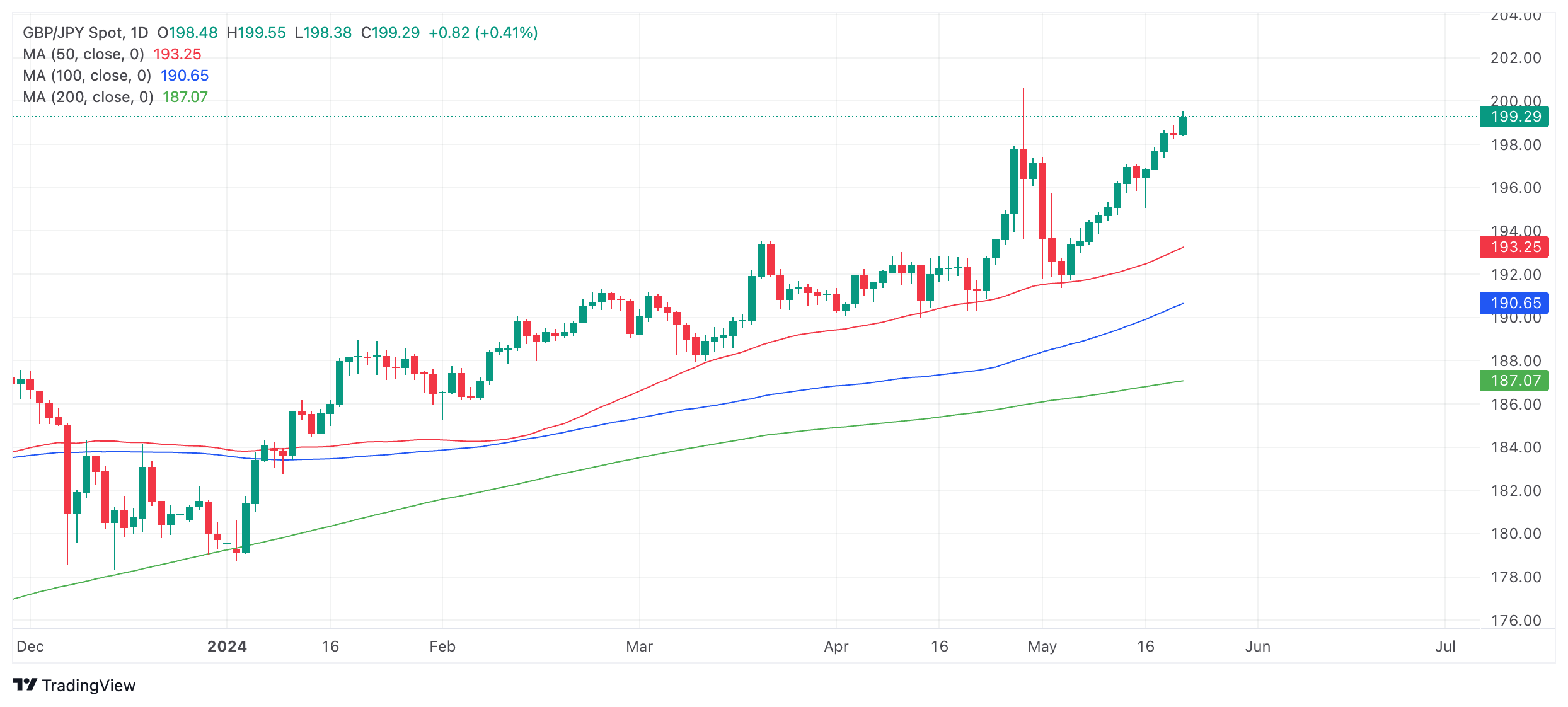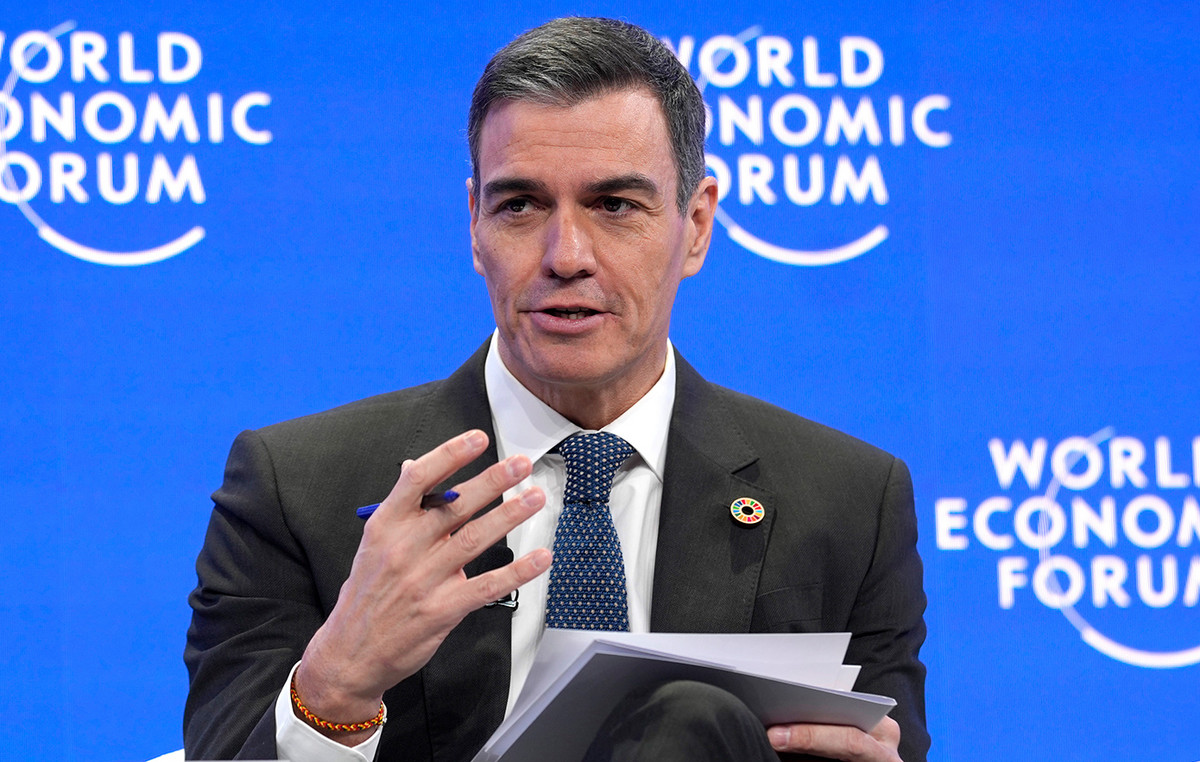- GBP/JPY rises after UK inflation data beat analyst estimates.
- The data could delay the time when the BoE cuts interest rates, a supportive factor for the GBP.
- GBP/JPY may have seen its gains limited after Japanese bond yields broke above 1.0% for the first time in more than a decade.
On Wednesday, the GBP/JPY pair reached 199.20, after the data from Inflation in the United Kingdom will exceed economists' forecasts. The data suggests that the Bank of England (BoE) could delay cutting interest rates, which would be positive for the British Pound (GBP).
Although rising inflation has traditionally been associated with currency devaluation, the advent of globalization and the relatively free flow of capital means that investors can now move their capital to countries with higher interest rates. This causes an increase in demand for the currencies of those countries. As higher inflation tends to beget higher interest rates, currencies also appreciate.
The UK's headline Consumer Price Index (CPI) rose 2.3% year-on-year in April. Although inflationary pressures eased compared to the previous month's 3.2%, they did not fall as much as economists expected (2.1%).
Something similar happened with the core CPI, which increased 3.9% compared to the estimated 3.6%, but below the 4.2% in March, according to the Office for National Statistics (ONS).
The data brings the inflation rate closer to the BoE's target of 2.0%, but as it was higher than economists expected, the pound rose in most pairs, including GBP/JPY.
GBP/JPY Daily Chart
Japanese Yen Gains Support After Bond Yields Break Above 1.0%
Despite weakening against the stronger GBP on Wednesday, the Japanese yen (JPY) likely saw some underlying support following news that 10-year Japanese government bond (JGB) yields had surpassed 1.0% for first time since 2012.
The positive correlation between yields and the yen suggests this may have helped the yen. Yields typically rise as a result of higher inflation expectations, and the rise fueled expectations that the Bank of Japan (BoJ) could raise interest rates again sooner than previously thought. Another reason for the rise was attributed to weak buyer demand at an auction of 40-year JGB bonds, as yields move inversely to bond prices.
Meanwhile, traders remain cautious about pushing the yen to new lows amid the risk of authorities intervening directly to prop up the currency. The intervention is believed to have been behind the yen's rally between April 29 and May 3, when the yen experienced volatile gains despite there being no obvious fundamental catalysts for the moves.
More recently, Japanese Finance Minister Shunichi Suzuki again expressed concern about the negative impact of a weak currency on wage increases, suggesting he remained willing to push the intervention button if the yen continued to weaken.
On the economic front, the latest data from Japan showed that the trade deficit widened in April, machinery orders unexpectedly rose in March and business sentiment among large manufacturers remained stable in May.
Source: Fx Street
I am Joshua Winder, a senior-level journalist and editor at World Stock Market. I specialize in covering news related to the stock market and economic trends. With more than 8 years of experience in this field, I have become an expert in financial reporting.








